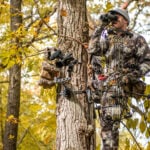Out-of-state hunts are the dreams of most hunters. Pulling off such a hunt takes an incredible amount of time and preparation. While most hunters realize they need to know the game laws of the state they will be hunting, many fail to consider the laws governing the transportation of game across state lines for their return trip home. Don’t put a damper on your next adventure by being ignorant of these rules and regulations.
Gone are the days of simply hauling your meat and antlers in the back of the truck like we did in years past.
The emergence of Chronic Wasting Disease (CWD), discovered years ago, has since made transporting deer and other game full of rules and laws that you better be savvy about if you want to do the right thing and avoid trouble at the same time. Not doing so could result in the loss of your trophy and meat, as well as result in tainted memories to your hunt of a lifetime. Here’s a few things to consider when it comes to the legalities of transporting a deer across state lines.
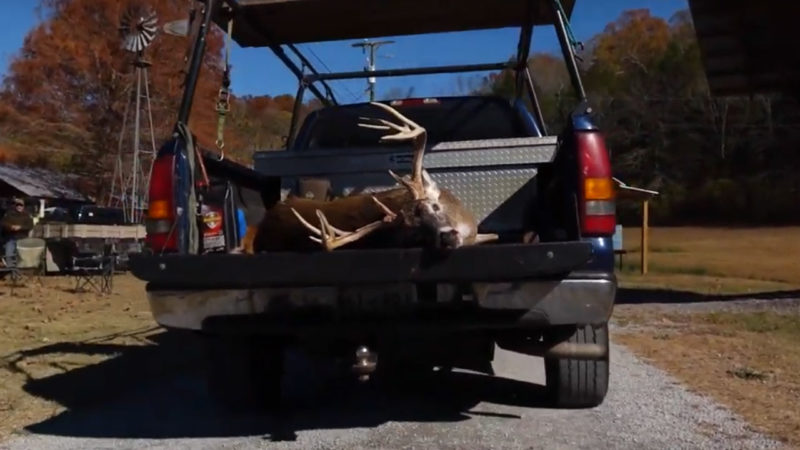
CWD has made the post-success chores of meat management more of a process. There are regulations in place for bringing your meat and antlers across state lines.
Especially in western states and many Midwestern states, but others as well, no part of the animal’s spine, brain, lymph nodes, or central nervous system may cross the states’ lines in which you harvested it. This means that the meat must be skinned and deboned prior to leaving the state.
I strongly suggest knowing how to skin and debone a big game animal. Take the time to learn these skills if you don’t already know how. This way, in the event that you can’t get your animal to a processor in the state you’re hunting, you can break the animal down for safe and legal transport back home. This also means that you should have a good set of sharp knives with you on your trip.
Also, some states may require that you take the carcass to a Fish & Wildlife location to have the animal tested for CWD.
If you plan on mounting that trophy buck, you must thoroughly and completely remove any and all meat and debris from the skull cap prior to bringing it home.
If you plan on having a European mount done, you must thoroughly clean off and clean out the entire skull so that no meat or tissues are attached to it.
According to CWD-Info.org, since the suspected infective agent (prion) is concentrated in the brain, spinal cord and lymph glands, the most common regulation is the prohibition of the importation of whole carcasses harvested from CWD areas. States that have adopted carcass transportation regulations do not allow the importation of any brain or spinal column tissue and allow transport of only the following:
- Meat that is cut and wrapped (either commercially or privately)
- Quarters or other portions of meat with no part of the spinal column or head attached
- Meat that has been boned out
- Hides with no heads attached
- Clean (no meat or tissue attached) skull plates with antlers attached
- Antlers with no meat or tissue attached
- Upper canine teeth, also known as “buglers,” “whistlers,” or “ivories”
- Finished taxidermy
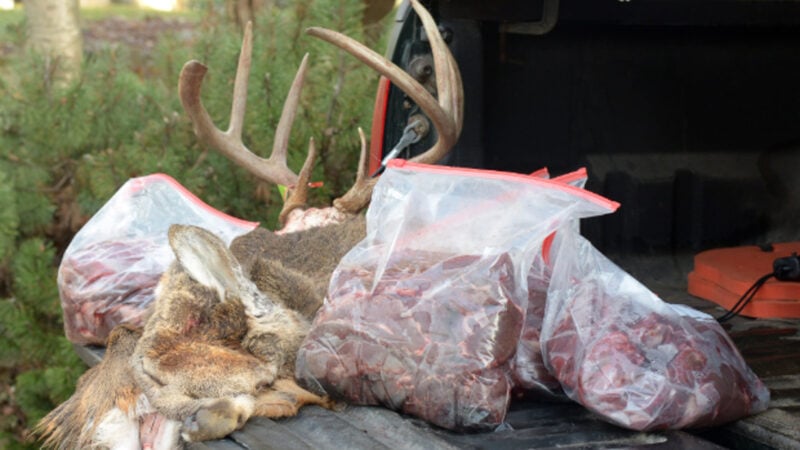
It’s also important to always make sure to know where the tag is supposed to be affixed to the animal when transporting it. In the case of a deboned animal, it may have to be with the meat, or in others, on your person. If bringing antlers home, maybe the law states the tag should be wrapped around the antlers. Or, if bringing a whole carcass home (only in states where it is legal to do so) make sure to know whether the tag should be wrapped around the leg or the antlers of the animal.
It may seem like it’s not that big a deal. However, failure to properly tag your animal can easily result in a hefty fine should you encounter a wildlife officer.
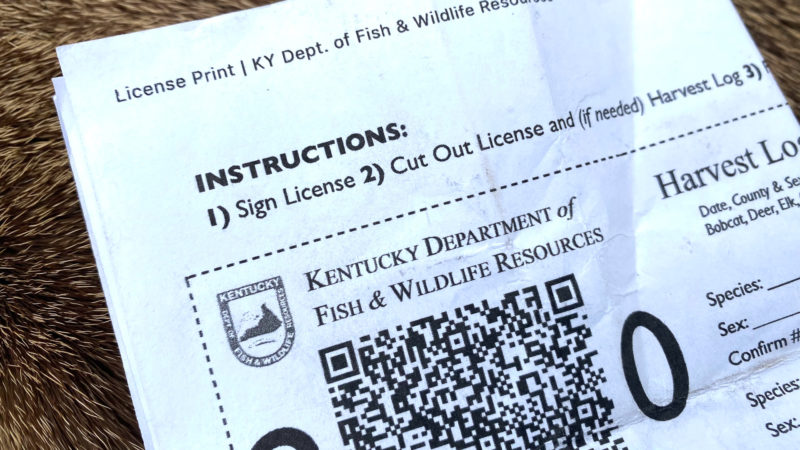
Keep in mind, the laws for the transportation of game are not limited to just the hunter who notched his or her tag. The individual possessing or transporting the game must abide by certain criteria as well. Such as when a hunter donates his kill to a friend, family member, or other individual who plans to transport it back to their home or processor. The example below shows criteria according to Tennessee Code pertaining to transportation criteria.
2021 Tennessee Code – Title 70 – Wildlife Resources
Any person who desires to take protected game or fish out of the state may do so under the following conditions, but not otherwise:
- Such person must have in possession at the time of such taking out of the state, or at the time of transporting within the state, a hunting and fishing license, duly issued to such person under this title; and
- Such person cannot take from the state more than two days’ bag or creel limit on ducks or other migratory birds or protected game or fish.
- Any officer of the wildlife resources agency, or assistant officer of the wildlife resources agency, sheriff, deputy sheriff, constable or other officer has the right to demand of any person possessing game and proposing to take it out of the state an inspection of such person’s license. A refusal on the part of the person to exhibit the license is a Class C misdemeanor.
- Any resident hunter may have game or fish transported home by filing with the common carrier a written statement with name and address, the number of such person’s hunting license, and the number of game or fish to be so transported, and that the game or fish was legally killed by such person and is not for sale. A copy of the statement shall be attached to such person’s game, or to whatever the game may be enclosed in.
- It is unlawful for any person, company or common carrier to ship or transport any birds, game fish or animals as mentioned in this section, except as otherwise provided in this title, without having ascertained that the person offering the same for shipment was then and there in possession of a hunting and fishing license duly issued and covering the period when the shipment was offered, and without requiring such person to accompany the shipment.
- A violation of this section is a Class C misdemeanor.
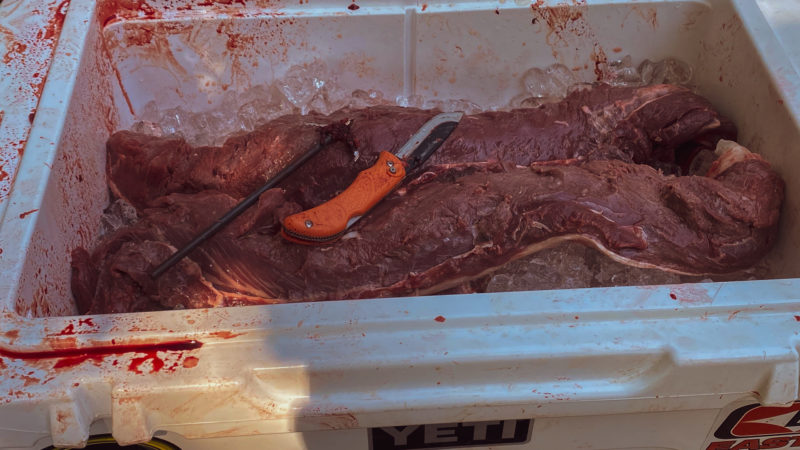
If you are in violation of the Lacey Act, or any violation for that matter, it becomes a Federal offense once you cross state lines.
What is the Lacey Act?
The Lacey Act makes it illegal to import, export, transport, sell, receive, acquire, or purchase in interstate or foreign commerce wildlife that was taken, possessed, transported, or sold in violation of any law or regulation of any State or in violation of any foreign law.
One example of a Lacey Act violation took place when a Georgia hunter crossed the line while hunting in Nebraska.
According to a release from the U.S Attorneys Office, District of Nebraska, Chad M. McCullough, 34, of Franklin, Georgia, was sentenced in federal court in Lincoln, Nebraska, for violating the Lacey Act. United States District Judge John Gerrard sentenced McCullough to 2 years’ probation for unlawful transportation of wildlife in interstate commerce. McCullough was ordered to pay a fine in the amount of $5,000 and restitution in the amount of $4,000.
A joint investigation conducted by the United States Fish and Wildlife Service, Office of Law Enforcement and the Nebraska Game and Parks Commission, Law Enforcement Division determined that in October of 2020, McCullough traveled to Noble Outdoors, a commercial big game guiding and outfitting business located in North Platte, Nebraska, to conduct an archery mule deer hunt. During the hunt, McCullough unlawfully shot a mule deer in Lincoln County, Nebraska, and subsequently transported trophy parts of the deer out of the state for taxidermy services in Georgia.
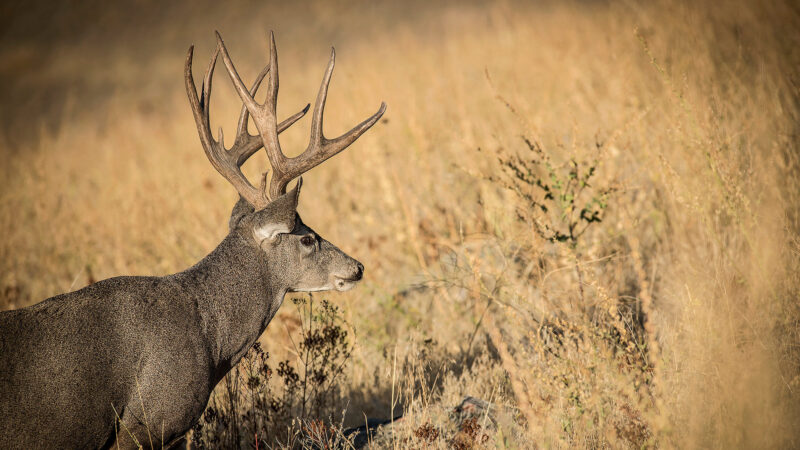
The investigation determined that in the fall of 2020, McCullough traveled to Noble Outdoors with two other hunting partners to hunt mule deer during the archery season. During the hunt, McCullough unlawfully shot a mule deer buck while seated in the passenger compartment of a Noble Outdoors vehicle parked upon the traveled portion of a public roadway. McCullough, after being provided a Ruger 6.5 Creedmoor caliber rifle and directed by the Noble Outdoors owner, killed the mule deer with the rifle, knowing the firearm deer season was closed at the time and that only archery equipment was authorized. Under Nebraska state law, shooting from the road, taking deer with a firearm during archery season, and hunting upon property without landowner permission are prohibited.
It’s been said, ignorance of the law is no excuse. “I didn’t know,” won’t cut it when an encounter with a wildlife officer happens. You need to know the rules and regulations before the hunt. Keep the items mentioned above in mind as you set out for your hunting trip this fall.
Take the time to ensure you’re following all guidelines for the state you’ll be hunting this season, as well as the states you’ll be traveling through. When you do, you can hunt with confidence, focusing on nothing more than meat and memories.

 By
By 

